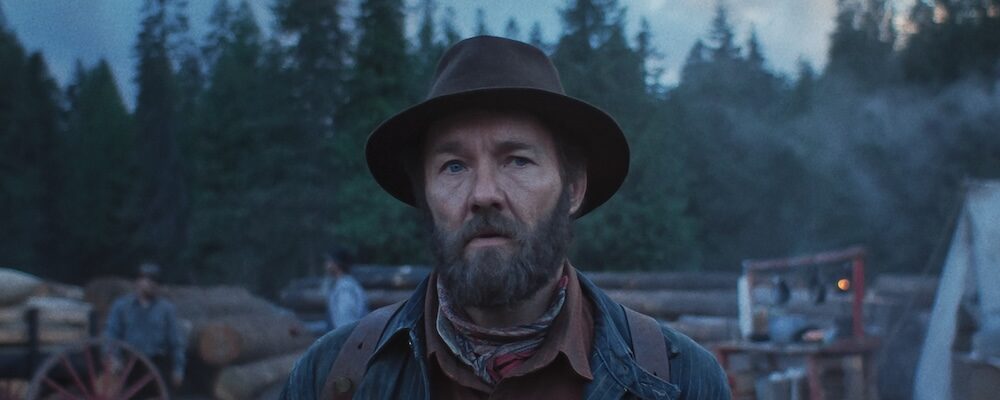Clint Bentley’s ‘Train Dreams’ Evocatively Captures the Beauty and Tragedy of Being Human
Sandra Miska
The life story of a seemingly ordinary man is at the center of “Train Dreams,” the beautiful and haunting second feature from Clint Bentley. The story of protagonist Robert Grainer (Joel Edgerton), a logger who spends his whole life in the Pacific Northwest, is so rich and vivid that one would swear he is based on a real person; however, the drama is an adaptation of Denis Johnson’s acclaimed novella of the same name. But Robert, whose story is told against the backdrop of a vast, changing world, might as well be a stand-in for millions of people who lived quiet, unrecorded lives.
For context, Robert is born at the end of the 19th century and passes away the year before the moon landing. He starts off as an orphan of unknown origins. Not a lot of information is given about his childhood, but it is revealed that he was affected by the mistreatment of his Chinese immigrant neighbors. As a young man, he goes to work helping to build a railroad, and here we see a disturbing incident in which his colleague (Alfred Hsing) is killed in what appears to be a racially-motivated homicide. Robert fails to stop the killers, and this event has a profound effect on the rest of his life. He’s not a big talker, much of what he goes through is internal, and his being haunted by that murder is shown by having the dead man’s face appear to him from time to time. In one of the film’s most poignant scenes, the usually stoic Robert ponders to an older logger colleague, Arn Peeples (a wonderful William H. Macy), about whether or not people are punished for past actions, and the mature man has a remarkably wise answer.
In his early thirties, Robert falls in love with and marries Gladys (Felicity Jones), a strong and spirited woman. Together, they build a cabin, and she holds down the fort by herself for the several months a year he is gone on logging jobs. Absence certainly makes the heart grow fonder, but it gets harder and harder for them to part from each with each passing year, especially after the birth of their daughter, Katie. In these family scenes, Bently hones in on the beauty in the simplicity of domestic life. But as soon as the narrator (Will Patton) mentions that Robert’s last extended period at home before he leaves for what he promises Gladys will be his final job away, is what he later looks back on as being the happiest time in his life, the viewer cannot help but feel a heavy heart as tragedy looms in the air.
Edgerton gives a stunning, understated performance in “Train Dreams,” easily the best in his career thus far. The supporting cast also deserves praise, not just Macy and Jones, but also Kerry Condon and Nathaniel Arcand. Condon appears as Claire Thompson, a forestry services worker. A profoundly independent woman for the time period, Claire shares a fleeting but meaningful bond with Robert. We also see the importance of human connectivity through his moving friendship with Ignatius Jack (Arcand), a local Native American shopkeeper who looks in on him during a low period in his life. The film is further elevated by a captivating score by Bryce Dessner, as well as Bently and cinematographer Adolpho Veloso’s decision to shoot only using natural light.
The final stretch of the film takes place in the 1950s, and the black-and-white television sets Robert views in the shop windows in Spokane seem high-tech and futuristic through his eyes, especially when they show him his first glimpse into outer space. Although he dies in 1968, a year in which many who view “Train Dreams” were already alive, his life is so vastly different in many ways from what most people live today. For example, one can assume he probably never would have seen a computer or even his own name in print. His story drives home how small we all are in the grand scheme of things, while also illustrating how precious each life can be.
“Train Dreams” begins streaming Nov. 21 on Netflix.

